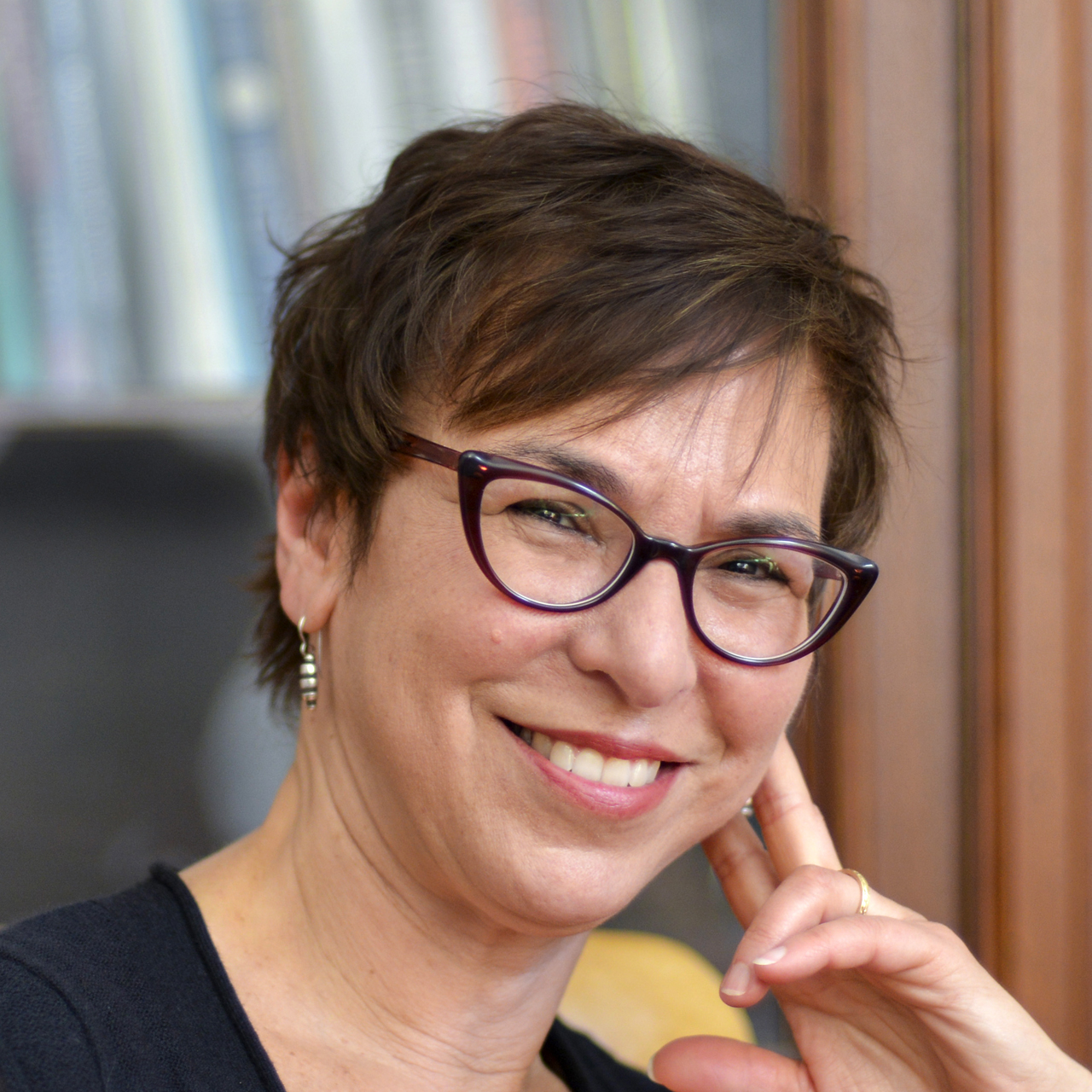Amy Kaplan

Amy Kaplan, 66, died peacefully at home in Philadelphia on July 30, 2020, of glioblastoma.
Amy was born in New York City and raised in New Rochelle. She attended Brandeis as an undergraduate and got her PhD in English from Johns Hopkins University. She spent her early career at Yale and then at Mt. Holyoke College, living and co-raising her and Harvey Weiss’s daughter Rose in Amherst, MA, her home for 20 years. For the last fourteen years she has been the Edward Kane Professor of English at the University of Pennsylvania. She served as department chair from 2013 to 2016.
Amy was a scholar of American literary and cultural studies, an extraordinary thinker and writer whose work on the culture of US imperialism transformed the field and will resonate for generations of scholars to come. She is the author of The Social Construction of American Realism (U Chicago P, 1988) and The Anarchy of Empire in the Making of U.S. Culture (Harvard UP 2002), and the co-editor, with Donald Pease, of the seminal Cultures of U.S. Imperialism (Duke, 1993), whose essays excavated the histories of expansion, conquest, and resistance that have shaped the cultures of both the United States and the countries it has dominated. She was president of the American Studies Association from 2003-4, during the invasion of Iraq, and used her platform to call upon scholars to continue to disrupt the narratives that the American empire tells about itself.
Her final book, completed right before her diagnosis, is Our American Israel: The Story of an Entangled Alliance (Harvard, 2018). This is perhaps Amy’s most personal book, although she declined to write any of it as personal essay. It is animated by the shadow history of her own life as a young Jewish intellectual in the 1960s, who found tremendous excitement in the Zionist idea, and whose ideas radically transformed as she traveled, read widely and thought rigorously about the history of Israel and Palestine. Our American Israel is a bold and wide-ranging examination of the contested historical and cultural terrain that made many “come to feel that the bond between the United States and Israel was historically inevitable, morally right, and a matter of common sense.”
Amy’s students and colleagues testify to her intellectual courage, her lack of sentimentality coupled with tremendous kindness, the way her work inspired them and shaped their own scholarship. She was a fierce presence with a delighted laugh.
Her daughter Rose was the abiding love of her life; Amy delighted in her creativity, her passion, her accomplishments, her friendships, and her ethical commitments. She met Paul Statt in 2002 in Amherst, and in him found a partner who matched her love of books, ideas, progressive politics, travel, and domestic life, in a warm and mellow key. His steady, expansive love sustained her through the intensities of her life and eventually, the years of her illness.
Amy had close friendships from every stage of her life, friends who met each other over the years and formed a loving support community during her illness. She was a warm and easy host; there were always fresh flowers. Her friends have many memories of cooking with Amy and Paul, sitting together over food and wine talking into the night about politics, relationships, ideas. They remember jigsaw puzzles and Rummikub, though few dared play her at Scrabble, at which she was surgical and ruthless. Amy loved being outdoors, and especially loved the ocean. Her friends remember hiking and swimming together in the Pioneer Valley, Eagles Mere, and Cape Cod, her dog Milo (“Mr. Id”) banging the backs of their knees with the enormous stick he was faithfully carrying. More than one friend recalls one of those walks as a transformative moment for the book they were working on, or the relationship that had hit a snag, as Amy engaged their account of struggles with lucid and generous thought.
She is survived by her partner, Paul Statt; her daughter, Rose Weiss; her mother, Eunice Kaplan (Solomon Kaplan, d.); her sister Lisa Kaplan (Leon Katz); her brother Jonathan Kaplan (Alyssa); her stepdaughter Molly Statt; her nieces and nephews Toby Vandersall (Matt), Abby Katz, David Katz (Susean), Jeff Kaplan and Traci Kaplan; and two great-nephews, James Solomon Vandersall and Solomon Ellis Katz, whose welcome arrival near the end of her life brought her great pleasure. Her brother Kenny (Kenneth Paul), who passed away in early childhood when Amy was 6 years old, remained a living and shaping presence in her mind and heart throughout her life.
Eliza J. Clark Folger Professor of English
Amherst College
Charitable donations in Amy’s name can be made to the National Brain Tumor Society’s Race for Hope Philadelphia, and to the Middle East Children’s Alliance.
Individual Tributes for Amy Kaplan

 Department of English
Department of English